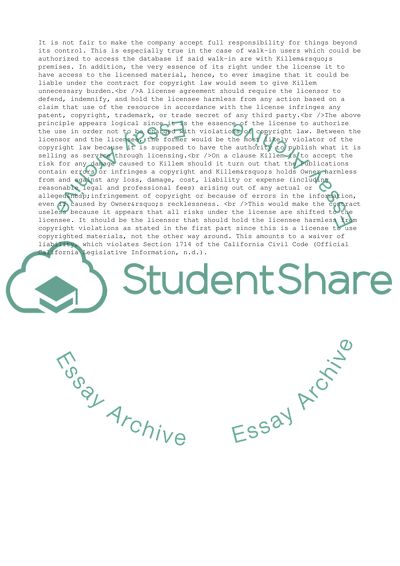Cite this document
(Electronic Information Management: Negotiating a Supply Licence Assignment, n.d.)
Electronic Information Management: Negotiating a Supply Licence Assignment. https://studentshare.org/management/1703396-electronic-information-management-assignment
Electronic Information Management: Negotiating a Supply Licence Assignment. https://studentshare.org/management/1703396-electronic-information-management-assignment
(Electronic Information Management: Negotiating a Supply Licence Assignment)
Electronic Information Management: Negotiating a Supply Licence Assignment. https://studentshare.org/management/1703396-electronic-information-management-assignment.
Electronic Information Management: Negotiating a Supply Licence Assignment. https://studentshare.org/management/1703396-electronic-information-management-assignment.
“Electronic Information Management: Negotiating a Supply Licence Assignment”. https://studentshare.org/management/1703396-electronic-information-management-assignment.


